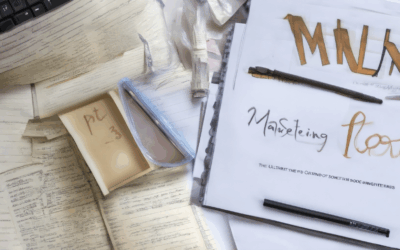Understanding literary concepts is essential for anyone who enjoys reading and wants to delve deeper into the complexities of written works. Literary concepts encompass a wide range of ideas, techniques, and devices that authors use to convey meaning, create atmosphere, and evoke emotions. From metaphors and symbols to themes and character arcs, these concepts provide a framework for interpreting texts and exploring the layers of storytelling. Whether you’re analyzing a classic novel, a poem, or a modern piece of prose, grasping these fundamental ideas can significantly enhance your comprehension and appreciation of literature. In this article, we will explore what literary concepts are, how they influence reading comprehension, and their broader implications on the way we engage with books. By understanding these concepts, you’ll gain valuable insights into the artistry behind writing and how it resonates with readers.
Key Takeaways
– Themes and motifs provide a framework for exploring universal human experiences, offering deeper insights into the author’s beliefs and observations.
– Metaphors and symbolism enhance the narrative by evoking emotions and ideas beyond literal meanings, enriching the story’s significance.
– Narrative structure, including plot and point of view, shapes the story’s impact, allowing authors to communicate specific messages effectively.
– Modernist techniques like stream of consciousness and Freudian analysis provide intimate insights into characters’ psyches and motivations.
– Rich imagery and poetic language elevate prose, creating vivid pictures that make complex ideas more relatable.
– Characterization reflects human nature, influencing plot development and reinforcing themes through character arcs and growth.
– Irony and paradox add depth to narratives, highlighting contrasts between expectation and reality, prompting readers to think critically about intentions and consequences.

What Are Literary Concepts?
Literary concepts are fundamental ideas and devices used in literature to create meaning, evoke emotions, and engage readers. Understanding these concepts is crucial for interpreting texts, analyzing authors, and appreciating literature effectively.
Key Literary Concepts Explained
- Theme: The central idea or message of a work, often developed through a series of related ideas. Example: In “To Kill a Mockingbird,” the theme of justice and equality is explored.
- Character: A person or entity in a literary work, defined by their traits, motivations, and actions. Example: Atticus Finch in Harper Lee’s novel.
- Plot: The sequence of events in a story, often divided into acts, rising action, climax, and resolution. Example: The journey of Odysseus in Homer’s epic poem.
- Symbolism: Objects, characters, or situations that represent larger concepts or ideas. Example: The white whale in Moby-Dick symbolizes obsession and obsession.
- Metaphor: A direct comparison between two unlike things, used to highlight similarities or differences. Example: “Time is a thief” in literature.
- Imagery: Descriptive language that appeals to the senses, helping readers visualize scenes or emotions. Example: “The sun dipped below the horizon, casting a golden hue over the beach.”
- Tone: The overall mood or attitude of a text, conveyed through word choice and structure. Example: The somber tone in “The Great Gatsby” reflects melancholy and disillusionment.
- Style: The unique way an author writes, including diction, sentence structure, and narrative perspective. Example: Ernest Hemingway’s concise, impactful prose.
- Genre: The category of literature, such as fiction, poetry, drama, or non-fiction. Example: Science fiction vs. historical fiction.
- Narrative Technique: Methods authors use to convey stories, such as third-person omniscient, first-person, or stream-of-consciousness. Example: Virginia Woolf’s use of stream-of-consciousness in “Mrs. Dalloway.”
Why Literary Concepts Matter
Literary concepts provide a framework for analyzing and interpreting texts. By understanding these elements, readers can gain deeper insights into the author’s intentions, explore the themes, and appreciate the artistic choices made in the work.
Examples of Literary Concepts in Action
Consider the example of “Hamlet.” The concept of revenge drives much of the play, but it’s expressed through the protagonist’s internal conflict and delayed action. The character of Polonius represents the idea of authority and wisdom, while Ophelia’s role highlights themes of love and loss. The setting of Elsinore reflects the political and social context of Denmark, adding layers to the tragedy.
Improving Reading and Writing Skills
Mastering literary concepts enhances both reading comprehension and writing abilities. Identifying symbols in a text helps interpret its meaning, while experimenting with metaphors can enliven your own writing. Practice analyzing characters, plots, and themes in various texts to develop a nuanced understanding of literature.
Resources to Explore Literary Concepts
For further exploration, visit James Whitfield Thomson ‘s literary platform for insights, writing tips, and in-depth analyses. Additionally, explore resources like The Writer’s Hub and LitCharts for interactive guides and explanations.
Conclusion
By grasping literary concepts, you unlock the richness of literature, enabling you to engage more deeply with texts and appreciate their complexities. Whether you’re analyzing a classic novel or crafting your own stories, understanding these elements is key to success.
Common Literary Concepts Used in Reading
Literary concepts are essential tools for understanding and analyzing texts. Here are some key concepts that are frequently used:
- Themes : The central ideas or messages of a text, often explored throughout the work.
- Characterization : The way authors develop and reveal characters through their actions, thoughts, and interactions.
- Symbols and Motifs : Objects, actions, or recurring elements that represent larger ideas or concepts.
- Imagery : Descriptive language that creates vivid pictures in the reader’s mind.
- Genre : The category of literature, such as fiction, poetry, drama, or non-fiction.
- Point of View : Whose perspective is telling the story, and how this affects the reader’s understanding.
- Metaphors and Similes : Figures of speech that compare one thing to another to highlight shared characteristics.
- Tone and Style : The attitude or manner in which the author presents the material.
- Narrative Structure : How the story is organized, including plot, setting, and sequence of events.
- Dialogue : The exchange of conversation between characters, revealing their personalities and relationships.
These concepts are fundamental to literary analysis and help readers gain a deeper understanding of texts. By identifying and exploring these elements, readers can uncover layers of meaning and appreciate the complexity of written works.
For more resources and insights into literary concepts, visit James Whitfield Thomson ‘s website, where you can find articles, guides, and tips for enhancing your reading and writing skills.

How Do Literary Concepts Enhance Our Understanding of Literature?
Literary concepts play a vital role in deepening our comprehension and appreciation of literature. These concepts provide frameworks through which we can analyze and interpret texts, uncovering layers of meaning and enhancing our engagement with the material. By understanding these elements, readers gain a more nuanced perspective, enabling them to connect with authors’ intentions and explore broader themes.
One of the most fundamental literary concepts is theme . Themes are recurring ideas or motifs that run throughout a work, often reflecting the author’s beliefs or observations about life. Identifying themes helps readers understand the underlying messages and motivations behind a story, making it easier to relate to the characters’ experiences and the narrative’s purpose.
Another essential concept is symbolism . Symbols in literature serve as visual or metaphorical representations of larger ideas. For instance, in To Kill a Mockingbird , the mockingbird symbolizes moral integrity and justice. Recognizing symbols allows readers to draw parallels between the text and real-world phenomena, enriching their understanding of the story’s significance.
Characters also serve as symbols of certain traits or ideals. Atticus Finch, for example, embodies the principles of fairness and moral courage. By analyzing character roles and their development, readers can reflect on how these attributes influence the plot and contribute to the overall theme of the novel.
Narrative structure is another critical concept. Authors employ various techniques, such as point of view and plot structure , to convey their stories effectively. Understanding these elements helps readers navigate the text and appreciate how the author constructs the narrative to communicate particular messages.
Modernist literature introduces additional concepts like stream of consciousness and Freudian analysis . These techniques allow authors to depict complex thoughts and emotions, providing deeper insights into characters’ psyches. By engaging with these methods, readers gain a more intimate understanding of the characters’ internal lives and the underlying motivations driving their actions.
Ultimately, literary concepts like metaphor , irony , and alliteration enhance our reading experience by making texts more vivid and relatable. These devices enable authors to convey abstract ideas and emotions through concrete imagery, helping readers connect with the stories on a deeper level.
By studying and applying these concepts, readers can approach literature with greater confidence and curiosity. Whether analyzing classic works or contemporary pieces, understanding literary devices fosters a richer, more meaningful engagement with the written word.

How Do Literary Concepts Enhance Our Understanding of Literature?
Literary concepts play a vital role in deepening our comprehension and appreciation of literature. These concepts provide frameworks through which we can analyze and interpret texts, uncovering layers of meaning and enhancing our engagement with the material. By understanding these elements, readers gain a more nuanced perspective, enabling them to connect with authors’ intentions and explore broader themes.
One of the most fundamental literary concepts is theme . Themes are recurring ideas or motifs that run throughout a work, often reflecting the author’s beliefs or observations about life. Identifying themes helps readers understand the underlying messages and motivations behind a story, making it easier to relate to the characters’ experiences and the narrative’s purpose.
Another essential concept is symbolism . Symbols in literature serve as visual or metaphorical representations of larger ideas. For instance, in To Kill a Mockingbird , the mockingbird symbolizes moral integrity and justice. Recognizing symbols allows readers to draw parallels between the text and real-world phenomena, enriching their understanding of the story’s significance.
Characters also serve as symbols of certain traits or ideals. Atticus Finch, for example, embodies the principles of fairness and moral courage. By analyzing character roles and their development, readers can reflect on how these attributes influence the plot and contribute to the overall theme of the novel.
Narrative structure is another critical concept. Authors employ various techniques, such as point of view and plot structure , to convey their stories effectively. Understanding these elements helps readers navigate the text and appreciate how the author constructs the narrative to communicate particular messages.
Modernist literature introduces additional concepts like stream of consciousness and Freudian analysis . These techniques allow authors to depict complex thoughts and emotions, providing deeper insights into characters’ psyches. By engaging with these methods, readers gain a more intimate understanding of the characters’ internal lives and the underlying motivations driving their actions.
Ultimately, literary concepts like metaphor , irony , and alliteration enhance our reading experience by making texts more vivid and relatable. These devices enable authors to convey abstract ideas and emotions through concrete imagery, helping readers connect with the stories on a deeper level.
By studying and applying these concepts, readers can approach literature with greater confidence and curiosity. Whether analyzing classic works or contemporary pieces, understanding literary devices fosters a richer, more meaningful engagement with the written word.
How Do Literary Concepts Enhance Our Understanding of Literature?
Literary concepts play a vital role in deepening our comprehension and appreciation of literature. These concepts provide frameworks through which we can analyze and interpret texts, uncovering layers of meaning and enhancing our engagement with the material. By understanding these elements, readers gain a more nuanced perspective, enabling them to connect with authors’ intentions and explore broader themes.
One of the most fundamental literary concepts is theme . Themes are recurring ideas or motifs that run throughout a work, often reflecting the author’s beliefs or observations about life. Identifying themes helps readers understand the underlying messages and motivations behind a story, making it easier to relate to the characters’ experiences and the narrative’s purpose.
Another essential concept is symbolism . Symbols in literature serve as visual or metaphorical representations of larger ideas. For instance, in To Kill a Mockingbird , the mockingbird symbolizes moral integrity and justice. Recognizing symbols allows readers to draw parallels between the text and real-world phenomena, enriching their understanding of the story’s significance.
Characters also serve as symbols of certain traits or ideals. Atticus Finch, for example, embodies the principles of fairness and moral courage. By analyzing character roles and their development, readers can reflect on how these attributes influence the plot and contribute to the overall theme of the novel.
Narrative structure is another critical concept. Authors employ various techniques, such as point of view and plot structure , to convey their stories effectively. Understanding these elements helps readers navigate the text and appreciate how the author constructs the narrative to communicate particular messages.
Modernist literature introduces additional concepts like stream of consciousness and Freudian analysis . These techniques allow authors to depict complex thoughts and emotions, providing deeper insights into characters’ psyches. By engaging with these methods, readers gain a more intimate understanding of the characters’ internal lives and the underlying motivations driving their actions.
Ultimately, literary concepts like metaphor , irony , and alliteration enhance our reading experience by making texts more vivid and relatable. These devices enable authors to convey abstract ideas and emotions through concrete imagery, helping readers connect with the stories on a deeper level.
By studying and applying these concepts, readers can approach literature with greater confidence and curiosity. Whether analyzing classic works or contemporary pieces, understanding literary devices fosters a richer, more meaningful engagement with the written word.

How Do Literary Concepts Enhance Our Understanding of Literature?
Literary concepts play a pivotal role in deepening our comprehension and appreciation of literature. These concepts serve as tools that enable readers to engage more meaningfully with texts, uncovering layers of meaning and fostering critical thinking. Here’s how they contribute to a richer literary experience:
- Themes and Motifs : Themes such as love, loss, or identity guide the exploration of human experiences. By identifying recurring motifs, readers gain insight into the universal truths conveyed through literature. For instance, the motif of journey in “The Great Gatsby” symbolizes the pursuit of the American Dream.
- Metaphors and Symbolism : Authors use metaphors to evoke emotions and ideas beyond literal meanings. A classic example is F. Scott Fitzgerald’s use of the green light in “The Great Gatsby,” representing the elusive dream of wealth and success. Symbolism, like the rose in “Romeo and Juliet,” enriches the narrative with deeper significance.
- Narrative Structure : Literary devices such as plot structure, character development, and point of view shape the story’s impact. Raymond Carver’s short stories often use non-linear narratives to explore moral complexities, leaving readers to piece together the truth.
- Imagery and Language : Rich imagery paints vivid pictures, while poetic language elevates prose. George Orwell’s “1984” employs stark imagery to depict a dystopian future, making the oppressive society feel chillingly real.
- Characterization : Characters serve as mirrors reflecting human nature. Atticus Finch in “To Kill a Mockingbird” embodies moral courage, teaching readers about justice and equality. Character arcs, like Scout Finch’s growth, illustrate personal development over time.
- Irony and Paradox : Irony highlights contrasts between expectation and reality. In “Othello,” Iago’s manipulation through subtle irony underscores the destructive power of jealousy. Paradoxes, like Hamlet’s delay, provoke readers to think deeply about intentions and consequences.
By analyzing these elements, readers can dissect texts more critically, connect with authors on a deeper level, and appreciate the complexity of literary works. Literary concepts transform reading from a passive activity into an active, intellectual journey that enriches both the individual and the cultural landscape.
For further exploration, visit James Whitfield Thomson to discover insights into storytelling techniques and narrative development. Explore how these concepts can inspire your own reading and writing experiences.





0 Comments